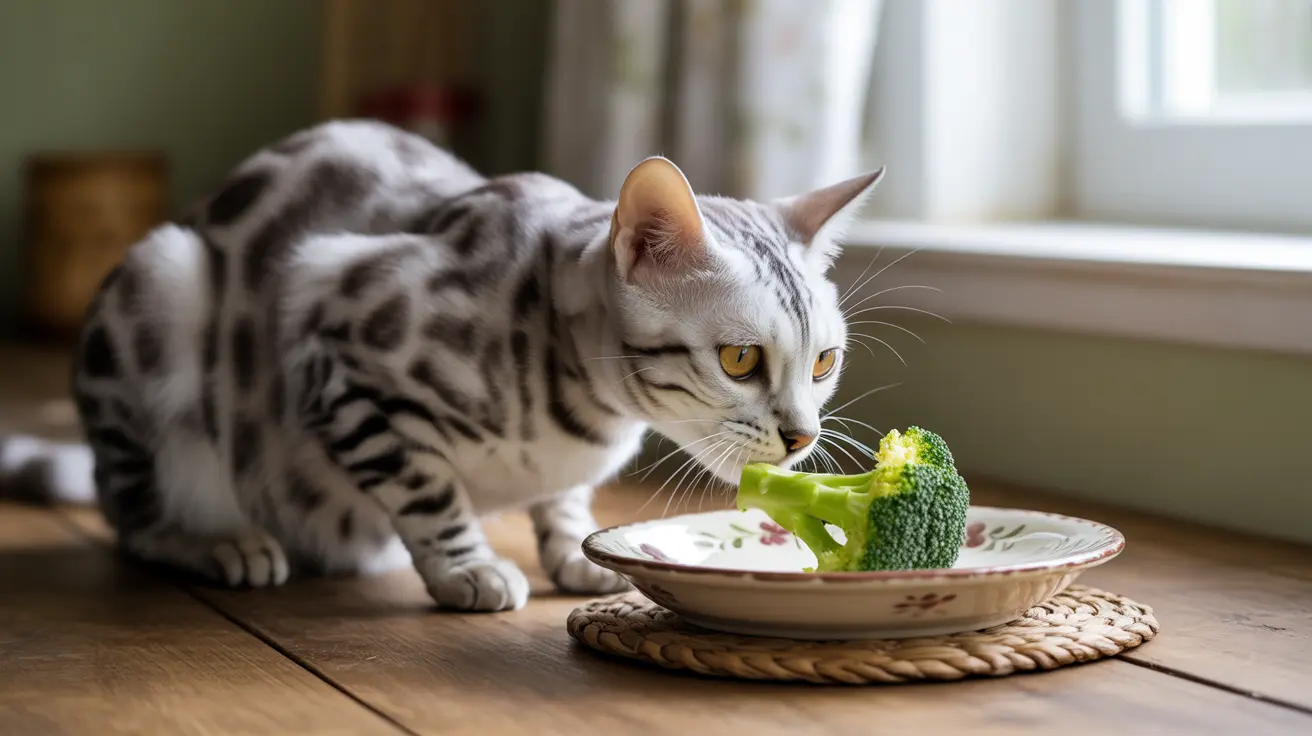As cat owners become more conscious about their pets' nutrition, questions about incorporating vegetables like broccoli into feline diets have become increasingly common. While cats are obligate carnivores, meaning they primarily need meat-based proteins, broccoli can actually be a safe and nutritious addition to their diet when offered appropriately.
In this comprehensive guide, we'll explore everything you need to know about feeding broccoli to your cat, including its safety, benefits, and proper preparation methods. We'll also address important considerations to ensure your feline friend can safely enjoy this nutritious vegetable.
Safety and Nutritional Benefits of Broccoli for Cats
Broccoli is non-toxic to cats and can offer several nutritional benefits when served in moderation. This vegetable contains essential vitamins A, C, and K, along with fiber and antioxidants that can support your cat's overall health.
The antioxidants in broccoli help combat free radicals in your cat's body, potentially contributing to disease prevention. Additionally, the fiber content can aid in maintaining healthy digestion and regular bowel movements.
Proper Preparation Methods
While cats can technically eat raw broccoli, cooking it makes it easier for them to digest and access its nutrients. Here's how to prepare broccoli safely for your cat:
- Wash thoroughly to remove pesticides and chemicals
- Steam or lightly boil without seasonings
- Cut into small, manageable pieces (less than 1/4 inch)
- Serve at room temperature
- Never add oils, salt, or seasonings
Serving Size and Frequency
When it comes to feeding broccoli to cats, moderation is key. Follow these guidelines:
- Start with tiny amounts to test tolerance
- Limit broccoli to no more than 10% of daily food intake
- Observe your cat for any digestive issues
- Offer as an occasional treat rather than a daily food
Potential Health Benefits
While cats don't process plant matter as efficiently as humans, broccoli can still provide several health benefits:
- Dietary fiber for digestive health
- Antioxidants for immune system support
- Low-calorie treat option for weight management
- Additional hydration source
- Anti-inflammatory properties
Precautions and Considerations
Before introducing broccoli to your cat's diet, keep these important factors in mind:
- Always consult with your veterinarian first
- Monitor for signs of digestive upset
- Ensure broccoli doesn't replace essential protein sources
- Be aware that not all cats will show interest in vegetables
- Stop feeding if any adverse reactions occur
Frequently Asked Questions
Is it safe for cats to eat broccoli as part of their regular diet?
Yes, cats can safely eat broccoli as part of their regular diet, but it should only make up a small portion (no more than 10%) of their overall food intake. Cats still need primarily meat-based proteins for optimal nutrition.
How should broccoli be prepared for cats to ensure safe consumption?
Broccoli should be thoroughly washed, lightly steamed or boiled without seasonings, and cut into small pieces. Avoid raw broccoli as it's harder to digest, and never add oils, salt, or other seasonings.
What are the nutritional benefits of feeding broccoli to cats?
Broccoli provides vitamins A, C, and K, fiber, antioxidants, and anti-inflammatory compounds that can support your cat's immune system, digestive health, and overall well-being.
Can cats eat raw broccoli, or is cooked broccoli better for them?
While cats can eat raw broccoli, cooked (steamed or lightly boiled) broccoli is better as it's easier to digest and reduces the risk of choking. Cooking also makes the nutrients more accessible.
How much broccoli is safe for cats to eat without causing digestive issues?
Start with very small amounts (a few tiny pieces) and observe your cat's reaction. Broccoli should not exceed 10% of their daily food intake, and some cats may need even less to avoid digestive issues.
Remember, while broccoli can be a healthy addition to your cat's diet, it should never replace their primary source of nutrition from high-quality meat-based proteins. Always consult with your veterinarian before making any significant changes to your cat's diet.






